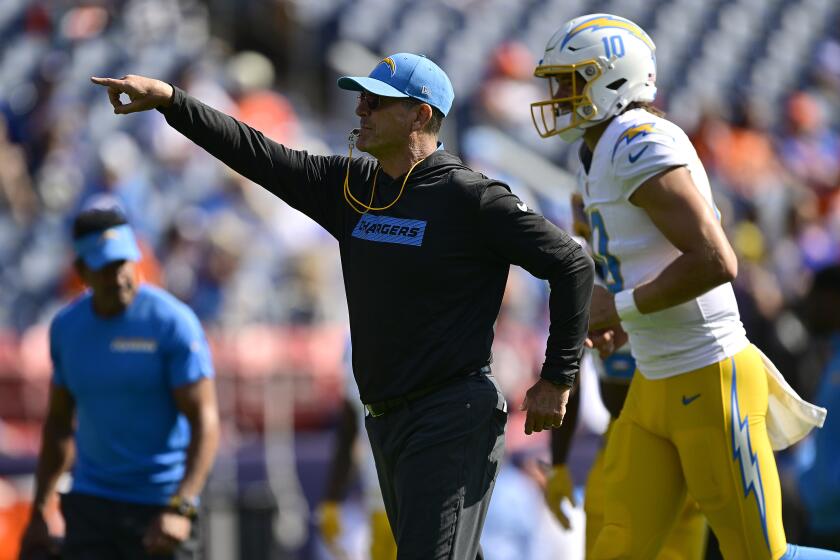Apodaca: Focusing on the real world
It’s no secret that significant changes are underway in education. But an easier-to-miss development is that these various paths to change, though often superficially unrelated, are converging on a central principle: Education must increasingly focus on real-world knowledge and skills.
This shift from the esoteric to the practical, the ivory tower to the shop floor, is sometimes subtle, in other instances intentionally bold, and it has passionate supporters as well as critics. But in all cases it marks a profound rethinking of the nature and scope of our efforts to prepare students for the future. Heads up: Any time you see the word “relevant” used in an educational context, consider it a euphemism for “intended to help land a good job.”
Whether this movement proves successful will remain unclear for some time to come, but for now the way forward appears to be firmly set in motion.
Following are some key examples:
1. One need look no further than our own Newport-Mesa Unified School District to find evidence of change.
Earlier this month, the school board discussed a proposal to adopt flagship programs that would allow students to specialize in specific subject areas. These flagships — or academies, as they are often called — are meant to tailor scholarship toward career objectives, sometimes in the arts and humanities, but increasingly in so-called STEM subjects, that is science, technology, engineering and math.
The proposal is still in the early planning stages, but the general idea that targeting pre-college education toward bankable careers is growing in popularity.
2. Newport-Mesa has also eagerly embraced the new Common Core state standards, which are being rolled out this school year. Common Core — which has been adopted by 45 states, including California — is undergoing field testing of new standardized tests this spring (yes, a test of the test), and it looks likely that less-than-wonderful results early on could set the stage for rocky times ahead.
Even so, the basic thrust of Common Core is powerful, and unlikely to be daunted by a difficult implementation. And at the heart of the new standards is the intention of helping students learn to think more deeply and critically. They focus on understanding and analysis rather than rote memorization, and offer the potential of producing young minds better equipped for the rigors of higher education and the challenges of workplaces going forward.
3. The growing involvement of corporate America in education is another harbinger of change.
Increasingly, businesses are segueing from merely writing checks to school foundations to becoming actively involved in directing curriculum. They represent education’s new and not-so-silent partner.
While that might send chills up the spines of many observers who worry about whether corporations are less interested in fostering future workers than potential customers, there seems little overt opposition to this trend. Indeed, the allure is great when technology giants and media conglomerates offer to help set up career-oriented programs — often in STEM fields, but also in projected high-demand disciplines in the arts and international business — that put students on clear tracks toward middle-class prosperity.
4. Speaking of STEM, the old career technology arena of education has been undergoing a major overhaul. More schools are offering targeted programs that carry less of the old stigma that reeked of classism and defeatism (the idea that such programs were intended only for those deemed unworthy of four-year colleges), and are now more about giving students opportunities in exciting high-growth fields, from culinary arts to environmental sciences.
Some interesting experiments are being carried out in schools across the nation. One campus on Chicago’s South Side, for instance, has begun offering a six-year high school program that allows students to graduate with an associate’s degree and promised job opportunity (thanks to corporate partner IBM: See No. 3 above). It’s a compelling idea, driven by the growing realization that a holder of a two-year degree just might be better positioned than someone with a doctorate and oodles of debt.
5. I leave the best — by which I really mean the worst — for last. Prepare for the new SAT, which has been revamped again, this time in an ostensible attempt to make it more — wait for it — relevant.
Just in case readers have missed any of my previous rants, let me pause and acknowledge that I believe the SAT to be a hopelessly flawed, fatally irrelevant, unfair and downright awful test that no amount of tinkering will redeem and that it should be stricken forever from the face of the earth.
Now that I’ve gotten that out of my system, the coming revision offers a mixed bag of tiny steps in the right direction and befuddling changes. Among the good: Eliminating the sadistic practice of deducting for wrong answers. Bad: The huge cop-out decision that instead of trying to improve the horrible essay portion of the test it would deemphasize the importance of writing altogether by making the essay optional. More relevant my foot.
I only hope that the ongoing revolution in academia will ultimately make the SAT a faded relic of a time when less credence was given to the idea that education is not just about teaching facts, but about learning stuff that matters.
PATRICE APODACA is a former Newport-Mesa public school parent and former Los Angeles Times staff writer. She lives in Newport Beach.
All the latest on Orange County from Orange County.
Get our free TimesOC newsletter.
You may occasionally receive promotional content from the Daily Pilot.




